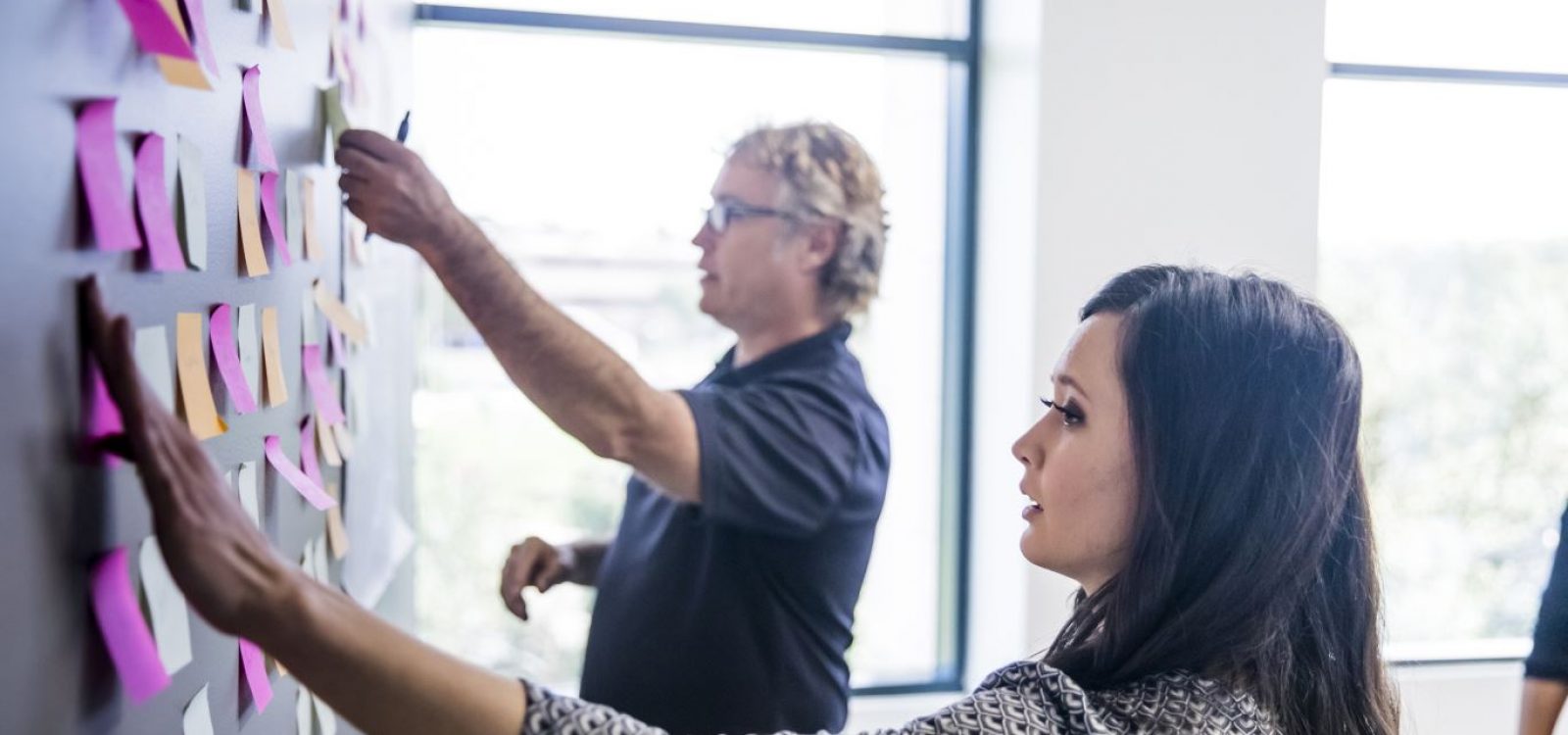
President’s Column – towards an equal playing field
Actuaries Institute President Jenny Lyon comments on the lack of diversity in leadership roles across Australian businesses, and draws our attention to the terminology actuaries use to define themselves. The impact of both issues is important as the Institute’s Council sharpens it’s focus on diversity.
One of the challenges a Board faces is how to reach consensus in decision making without losing the benefits of a diverse range of views. This can be particularly difficult in a membership organisation where it is important to consider all members interests, while also maintaining a holistic view and managing the sustainability and growth of the organisation. Perhaps there is an even greater argument for diversity on the board of such organisations.
Lily Meszaros, our Committee and Volunteer Engagement Manager, drew my attention to a Ted Talk by Mariam Veiszadeh. Mariam Veiszadeh is a lawyer, a diversity & inclusion practitioner, advocate and a social commentator. Proud of her refugee background, Mariam is passionate about championing the rights of minority groups in an endeavour to normalise ‘difference’ or rather, normality. In this talk she reflects on how stereotyping, unconscious bias and societal privilege contribute to an unequal playing field for people from diverse minority groups. I recommend the talk to anyone who has an interest in the topic – and even more to those who don’t!
 In the AFR a few weeks ago, there was an article titled Harnessing cultural diversity is hard – but crucial’ by Corrs Chambers Westgarth chief executive John Denton. It commented on a 2016 report by the Human Rights Commission Leading for Change: A blueprint for cultural diversity and inclusive leadership. This report noted that of the CEO’s of the ASX200 companies, 77% had an Anglo-Celtic background; 18% had a European background; and only10 CEO’s (5%) had non-European background. None had an indigenous background. I have referenced this article a couple of times when speaking to members recently, as I suspect the leaders in the industries where actuaries typically work would be of similar profile.
In the AFR a few weeks ago, there was an article titled Harnessing cultural diversity is hard – but crucial’ by Corrs Chambers Westgarth chief executive John Denton. It commented on a 2016 report by the Human Rights Commission Leading for Change: A blueprint for cultural diversity and inclusive leadership. This report noted that of the CEO’s of the ASX200 companies, 77% had an Anglo-Celtic background; 18% had a European background; and only10 CEO’s (5%) had non-European background. None had an indigenous background. I have referenced this article a couple of times when speaking to members recently, as I suspect the leaders in the industries where actuaries typically work would be of similar profile.
Institute focus on diversity
We have established a Diversity and Inclusion Working Group for the Institute and it held its first meeting in September. There are male and female members who come from a range of different backgrounds, locations, practice areas and cultural heritages. Organisations in Australia have a focus on the diversity within their organisations and it is relevant for us to reflect this within the Institute and our membership. As a recruiter, I can confirm that companies do focus on being given diverse shortlists when looking to recruit, so it is important we ensure our membership can offer a diversity of talent, perspective and experience.
At Council’s Strategy Day in September we spent time thinking about what our profession and the Institute might look like in the future. Projected views and commentary about the future were collected from Councillors and other key leaders in the profession. This information was used to help us build an expected future state of the profession, which we will be able to use for future planning. I was somewhat (positively) surprised that diversity emerged as an important topic for discussion when thinking about what the profession would look like in the future. There was a clear recognition that we needed to reflect this in our Strategy
Language becomes reality
During this year, it has become clear to me that the language we use about ourselves is vital in the way our profession is perceived. This is something which David Morrison touched on in his CPD presentations when he defined culture as “the stories we tell about ourselves”. I think we are inclined to trap ourselves in boxes by the use of words such as “traditional” actuaries and the “wider fields” or “non traditional” fields. How can we convince anyone we are experts if we say this is a non traditional field for actuaries? If this is the way we think about ourselves then it is how others will see us too – as a profession which works in a narrow range of fields with occasional entrepreneurs who “break out”. In fact, fewer than 50% of our members work in life or general insurance, and of those, many work in business roles well outside technical actuarial jobs. It is important to celebrate the achievements of people who work in different areas, but they should not be seen as unusual. They should be seen more as another demonstration of the flexibility and effectiveness of the strong skill set we have.
A further use of the importance of terminology was brought to my attention by actuaries in Hobart who questioned why we insist on referring to actuaries being experts in “superannuation”, rather than the much broader industry of retirement incomes/wealth management. A good point!
There are certainly many opportunities in the broader industry as the focus on income in retirement, long term health care and all the aspects of financial and health management become important to an increasing number of the population.
I would be interested to hear how you think we can change the way in which we think and talk about our profession and the way in which we promote ourselves externally. Please feel free to post a comment below.
CPD: Actuaries Institute Members can claim two CPD points for every hour of reading articles on Actuaries Digital.






